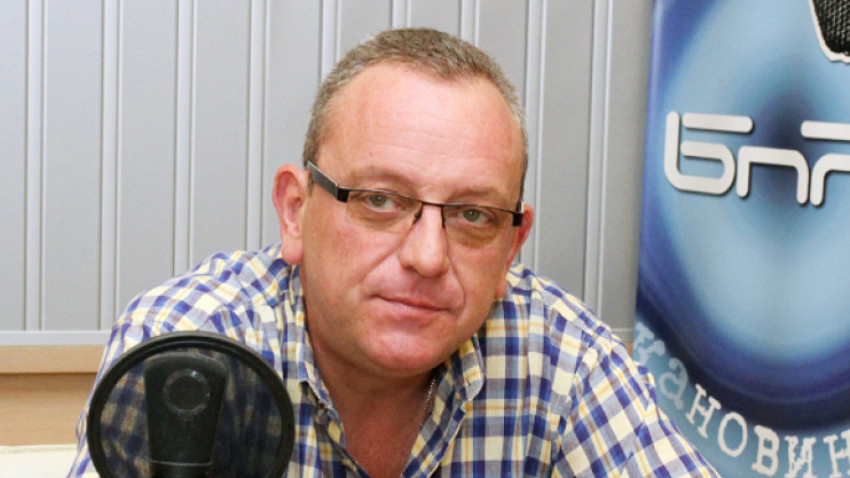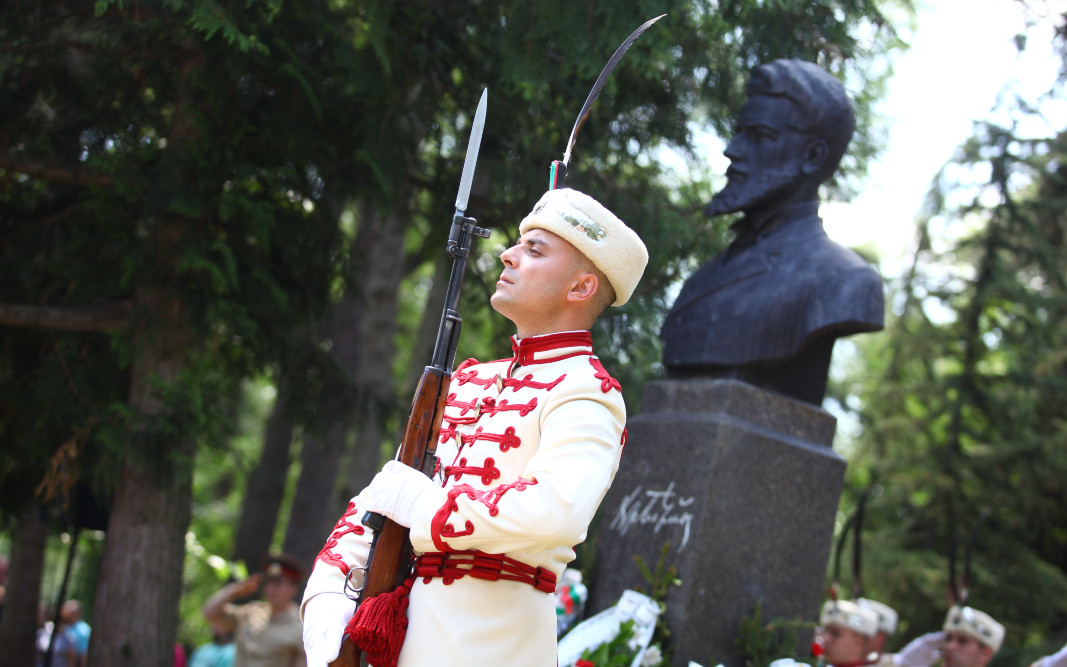
The Day of Botev and those who died for the freedom and independence of Bulgaria, which is celebrated annually on June 2, is among the historical dates that do not divide our society. How do modern Bulgarians understand freedom and why do we honour Bulgarian heroes only once a year instead of doing that on a daily basis? Radio Bulgaria asked historian and former Minister of Culture Professor Petar Stoyanovich. With his inherent sense of humor, he made an interesting interpretation of the concept of "freedom", referring to the 19th century, when Bulgaria was liberated from five centuries of Ottoman rule. That is why our notion of freedom is post-Renaissance rather than contemporary and belonging to the present 21st century. "It was then that we sought the grandest moments of self-knowledge and self-assertion," notes Peter Stoyanovich:

"This is an outdated notion of national identity, a futile angle from which we see our self-assertion. The same applies to freedom. June 2 is based on an emblematic moment for our liberation movement - the death of Hristo Botev on the same date in 1876, which after September 9, 1944, overgrew with anti-fascism and turned into a very interesting kind of red revival."
Two questions arose after the democratic changes in 1989 - have we understood the essence of our national revival and national liberation movement, and the communist interpretation of our history?
After 1944, a mythology related to the objectives of the socialist order emerged around June 2. From a modern perspective it is interesting to know why, as there are many other historical dates such as May 1 that have political overtone:

"The ideologisation of June 2 is not likely, it is certain. I would say that immediately after September 9, 1944, these things were institutionalised with the direct repression against Bulgaria's past. Why is it necessary? Any regime, especially a totalitarian regime like the one of the Bulgarian Communist Party, needs historical references and a formal linking of the real struggle for freedom with the ideological struggle for supremacy", said Petar Stoyanovich.
All regimes use history in order to justify and illustrate their ideology, which also happened with June 2 - Petar Stoyanovich said and added something very important:
“I would like to emphasize that this in no way diminishes June 2 as a day of tribute to the people who truly sacrificed themselves for the liberation and integrity of the Bulgarian state. There is no ambiguity in Bulgaria on whether June 2 should be celebrated. Speaking of the retro style of our celebrations, feasts, festivals and commemorations, the sound of air raid sirens during a commemoration can only be heard in this country. All people stand still for 1 or 2 minutes on a certain day of the year to commemorate their heroes. This is an old-fashioned, yet a very remarkable thing. Such a thing can't be seen elsewhere, but it is good to see it happening every year.”

Why should we pay tribute to the heroes who fell for the freedom of Bulgaria on June 2 and not on a daily basis? Petar Stoyanovich has a pragmatic answer:
"I think that if June 2 was not declared the Day of Botev and those who died for the freedom and independence of Bulgaria, we wouldn’t pay tribute to the heroes on that day either, because we want a lot of other things. Bulgarian families and children are now a different breed. We have to explain to them what heroism is, what Bulgaria is, why it makes sense to be Bulgarian, etc."
The historian expressed hope that he had succeeded in making the listeners and the public think again about the issues of life, death, family, upbringing and the meaning of tomorrow.
The newest exhibition at the National Museum of Military History in Sofia, 'War and the Creatives: A Journey Through Darkness' opens today, offering free entry as a gesture to those who were unable to visit during the recent renovations. Rather than..
A 5,000-year-long history lies hidden in the ruins of the medieval fortress “Ryahovets” near the town of Gorna Oryahovitsa where active excavations began ten years ago. On this occasion, on November 17, the Historical Museum in Gorna Oryahovitsa..
Just days ago, archaeologists uncovered part of the complex underground infrastructure that once served the Roman baths of Ratiaria - one of the most important ancient cities in Bulgaria’s northwest. Founded in the 1st century in the area of..

+359 2 9336 661
